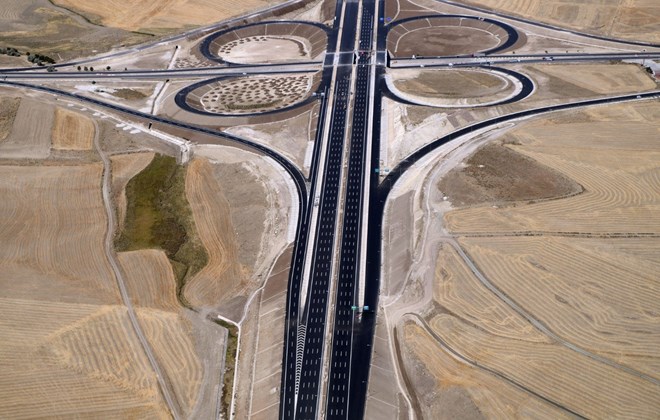
Monday September 7, 2020

The 330-kilometer "smart" highway connecting the capital Ankara with central Niğde province will be inaugurated on Sept. 4 by President Recep Tayyip Erdoğan. (DHA Photo)
The 330-kilometer (205-mile) highway that connects the capital Ankara with central Niğde province and is dubbed as the “smartest” road of the country will be inaugurated Friday by President Recep Tayyip Erdoğan.
The highway will be managed from a single command center with a domestically developed smart transportation systems infrastructure. With the technology, drivers will be notified immediately of accidents and other risky circumstances that may occur on the highway.
The Ankara-Niğde highway is 330 kilometers in length, including 275 kilometers of highways and 55 kilometers of access roads.The smart highway will nearly halve the travel time between the two provinces, reducing it from four hours and 14 minutes to two hours and 22 minutes. Initially, the 105-kilometer-long first section and 57-kilometer-long third section of the road will be opened. The project will create connections from Ankara to Mersin, Adana, Gaziantep, Hatay and Şanlıurfa provinces and thus save 12.551 million liters (3.316 million gallons) of fuel annually.
Within the scope of the project, a fiber optic cable infrastructure of 1.3 million meters (4.27 million feet) was laid on the road. Also, along the highway, 500 traffic sensors, nine meteorological measurement stations, 208 incident detection cameras, 335 smart transportation field management units and 687 digital media servers were installed.
Having attached major importance to upgrading transportation and accessible infrastructure since the early 2000s, the Turkish government has invested around TL 767.5 billion ($103.20 billion) in multiple projects.
The highway will be monitored 24/7 from the 15-people control center team. The system will be activated in case of accidents, traffic congestion and other dangerous situations. Once the operators in the control center are informed about the incidents via cameras, drivers will be notified through smart signs on the route.
Within the scope of its construction, five viaducts that total 3,566 meters, 2,368 meters of 49 bridges, 4,506 meters of 75 overpasses and approximately 131 million cubic meters of excavations have been carried out.